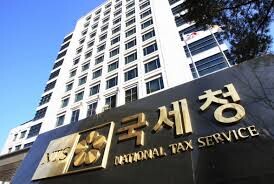hankyoreh
Links to other country sites 다른 나라 사이트 링크
S. Korea and other G20 countries target overseas tax havens

By Kwon Eun-jung, staff reporter
As early as 2016, the South Korean government may be laying claim to taxes on overseas earnings kept in major offshore tax havens such as the Virgin Islands and Cayman Islands.
A decision was reached at the recent G20 Summit in Russia to exchange information on foreign earnings, including those in tax havens that are US and UK territories.
“At the G20 Summit in Moscow on Sept. 6, the member states decided to honor their offshore tax evasion prevention agreement by setting up a system for tax information exchange by 2014 and putting it into effect by 2016,” said a source in the Ministry of Strategy and Finance tax office on Sept. 24, on condition of anonymity.
The information would cover not only the 20 member states of the G20, but also bank accounts in major UK and US territories serving as tax havens, including the Virgin Islands, the Cayman Islands, and Bermuda.
During the summit, some countries - particularly the UK - objected to the exchanges on the grounds of privacy protection. But those in favor reportedly won the day by stressing the importance of tax haven taxation as a way of combating the ongoing financial crisis.
“Most of the countries present at the summit agreed on exchanging bank information as a way of beefing up oversight and monitoring ‘mobile income’ that goes where tax rates are lowest around the world,” said a Ministry of Strategy and Finance source.
The term “mobile income” refers to patent fees, dividends, and interest incurred through the use of products and services overseas. Consisting mainly of cash assets, it is often transferred to shell companies in areas with low or no taxes to avoid taxation at home. The adoption of this method by individuals and businesses large and small has been pointed to as one of the main reasons tax revenues around the world have dropped.
The G20 governments are now planning discussions on what kind of information to exchange and when, with a target date of 2016.
In South Korea’s case, the 2013 tax plan includes regulations that would allow for corporate and individual taxation if information about income and assets in tax havens is obtained through these exchanges. This includes a plan for “controlled foreign corporation retained income cumulative taxation,” where income concealed in a country with low or no taxes would be regarded as dividends and subject to the appropriate income or corporate taxes.
To date, interest and divided income in tax haven shell companies has only been taxed when it has exceeded 50% of total revenue. The new tax plan would allow for taxation even when the number is less than 50%.
The government expects the overseas account information to substantially boost the collection of corporate and individual mobile income and taxes evaded through offshore havens. Historically, income from overseas has been effectively untraceable when it remained abroad without coming into South Korea.
The National Tax Service first launched a major investigation into offshore tax evasion in 2009. A total of 180.1 billion won (US$167.5 million) was collected that year. In 2011, the number jumped all the way to 963.7 billion won ($896.2 million), but it dropped the following year to 825.8 billion won (US$768 million).
Please direct questions or comments to [english@hani.co.kr]
Editorial・opinion
![[Column] Park Geun-hye déjà vu in Yoon Suk-yeol [Column] Park Geun-hye déjà vu in Yoon Suk-yeol](https://flexible.img.hani.co.kr/flexible/normal/500/300/imgdb/original/2024/0424/651713945113788.jpg) [Column] Park Geun-hye déjà vu in Yoon Suk-yeol
[Column] Park Geun-hye déjà vu in Yoon Suk-yeol![[Editorial] New weight of N. Korea’s nuclear threats makes dialogue all the more urgent [Editorial] New weight of N. Korea’s nuclear threats makes dialogue all the more urgent](https://flexible.img.hani.co.kr/flexible/normal/500/300/imgdb/original/2024/0424/7317139454662664.jpg) [Editorial] New weight of N. Korea’s nuclear threats makes dialogue all the more urgent
[Editorial] New weight of N. Korea’s nuclear threats makes dialogue all the more urgent- [Guest essay] The real reason Korea’s new right wants to dub Rhee a founding father
- [Column] ‘Choson’: Is it time we start referring to N. Korea in its own terms?
- [Editorial] Japan’s rewriting of history with Korea has gone too far
- [Column] The president’s questionable capacity for dialogue
- [Column] Are chaebol firms just pizza pies for families to divvy up as they please?
- [Column] Has Korea, too, crossed the Rubicon on China?
- [Correspondent’s column] In Japan’s alliance with US, echoes of its past alliances with UK
- [Editorial] Does Yoon think the Korean public is wrong?
Most viewed articles
- 1[Column] Park Geun-hye déjà vu in Yoon Suk-yeol
- 2N. Korean hackers breached 10 defense contractors in South for months, police say
- 3Will NewJeans end up collateral damage in internal feud at K-pop juggernaut Hybe?
- 4[Cine feature] A new shift in the Korean film investment and distribution market
- 5[Editorial] Japan’s rewriting of history with Korea has gone too far
- 6[Column] ‘Choson’: Is it time we start referring to N. Korea in its own terms?
- 7Kim Jong-un expressed ‘satisfaction’ with nuclear counterstrike drill directed at South
- 8[Editorial] New weight of N. Korea’s nuclear threats makes dialogue all the more urgent
- 9[Column] The clock is ticking for Korea’s first lady
- 10Senior doctors cut hours, prepare to resign as government refuses to scrap medical reform plan